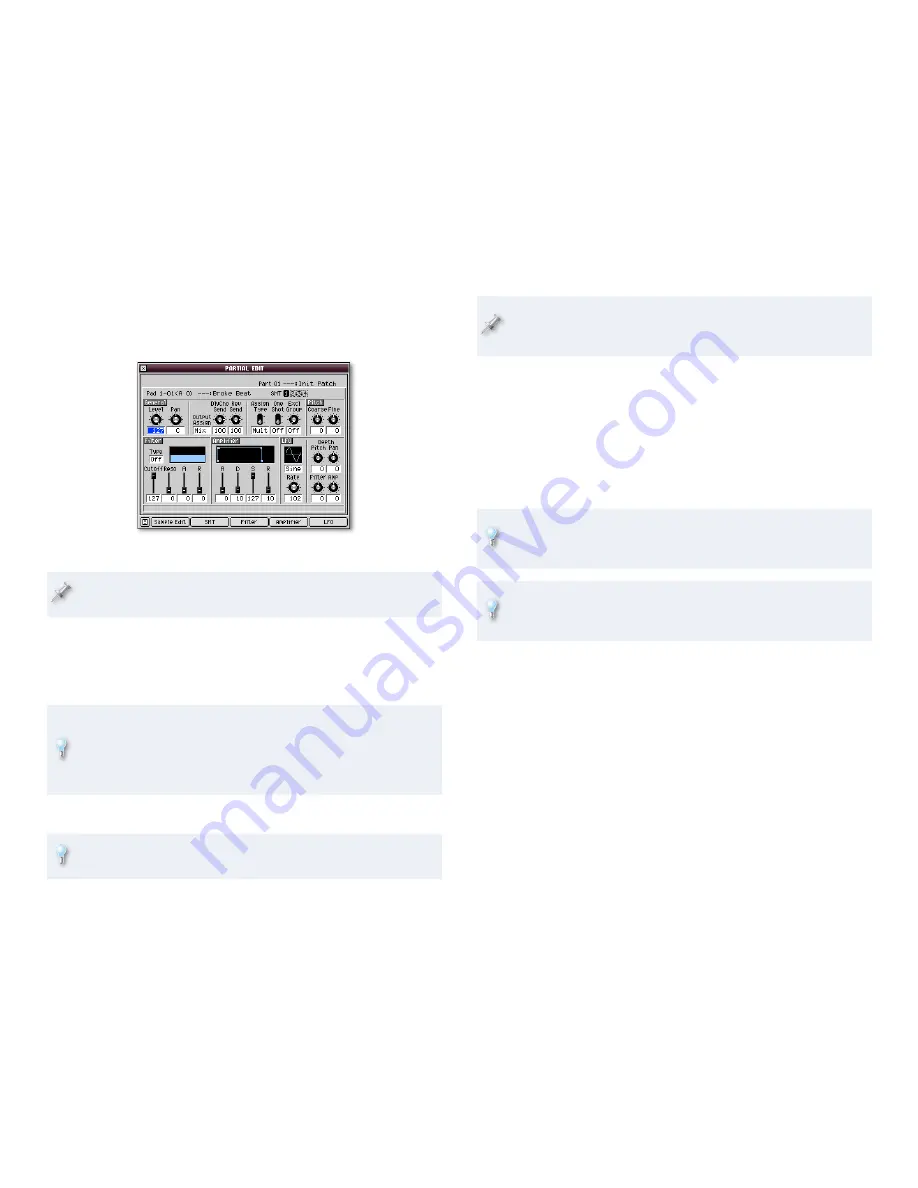
Controlling the Behavior of the Sample
Follow the instructions in “Playing Your Patch” on Page 12, and then press the
QUICK EDIT button to display the PARTIAL EDIT window.
In this window, you set the behavior of the “partial” that plays the sample.
A partial is a group of up to four samples that are played together by
a pad or by a range of pads.
Sample Volume and Stereo Position Settings
Level
—This parameter sets the volume of the partial that plays the
sample.
You can adjust the overall volume of the patch, too, and that interacts
with this parameter’s setting. It’s a good idea in a single-sample patch
to set this to 127 (all the way up). If you’ve got multiple samples in the
patch, use this parameter to set their volumes relative to each other,
with the sample you want to be the loudest set to 127.
Pan
—This sets the stereo location of the partial.
If you’re working in a patch that contains a bunch of drum kit sounds,
you can pan their individual partials to sound like a real drum kit.
•
•
When you record with a patch, its track has its own Pan setting that
shifts the stereo position of all of the samples in the patch to the left
or right.
Cause of Effects
Output Assign
—sets where the sample’s sound goes. You can select:
Mix
—so the sample is sent directly into the main
MV-8800 mix as is.
Aux1-4
—so the sample is sent to the Aux bus feeding the MFX (for
“Multi-Effects”) effect processor. This allows you to add MFX to the
sample.
You can also send related samples to the same Aux bus, allowing you
to change all of their volumes at once in the MIXER (AUX/FX/AUDIO
PHRASE/INPUT) window.
If you’ve installed an optional MP8-OP1 audio expansion board, you can
send the sample to a single output jack (Mlt1-8) or to a stereo pair of
output jacks (M1/2-7/8).
DlyCho Send
—sets the amount of delay or chorus you want to add.
Rev Send
—sets the amount of reverb you want to add.
Playing Fast and Playing Rolls
Assign Type
—This parameter sets what happens when you play fast
notes or rolls. If you set it to:
Mult
—the sample plays through each time you hit the pad.
This setting produces the most natural sound with percussion
samples.
Sngl
—each time you hit the pad, it cuts off the previous note,
creating a more mechanical sound.
•
•
•
•
•
•
•
•
































